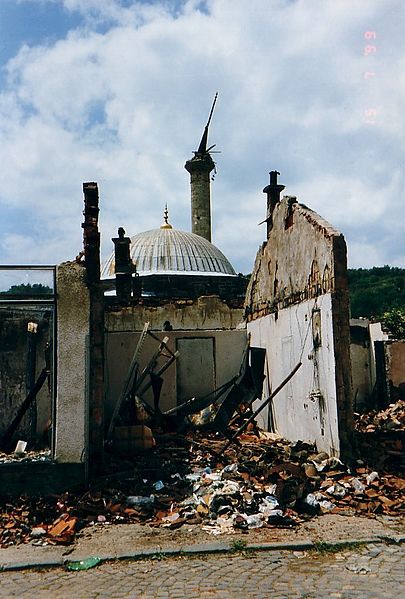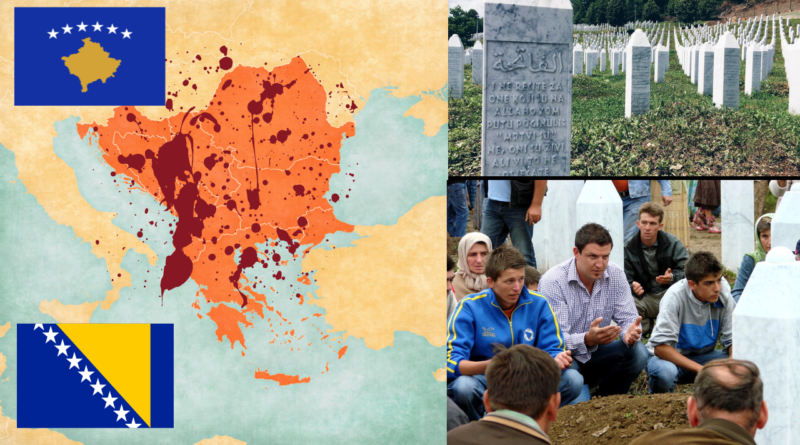The Meaning of Balkanization
Guest Writer/Author: Fazal Firdausi
Introduction
The term Balkanization means the geopolitical fragmentation of a region or a country into several smaller territories due to hostilities emerging from ethnic, cultural, and religious differences. In the contemporary geopolitical discourse, the term Balkanization is widely used in the context of the United Kingdom, saying goodbye to the European Union and cessationist tendencies cropping up in different parts of the world.
The word ‘Balkans’ refers to the geographical region situated in southeastern Europe. It is partially spread in the Balkan Peninsula. The region got its name from the Balkan Mountains. The Adriatic Sea borders the Balkan Peninsula in the northwest and the Ionian Sea in the Southwest. Though there is no agreement among the scholars regarding what countries constitute the Balkan region, generally, the following countries are included:

- Serbia
- Croatia
- Bosnia Herzegovina
- Kosovo
- Albania
- Bulgaria
- Montenegro
- Greece
- Northern Macedonia
- The European part of Turkey
Several ethnicities and nationalities, including Slavs, Bosniaks, Croats, Greeks, Turks, and Albanians, inhabit the Balkan countries. Eastern Orthodox Christianity, Catholic Christianity and Sunni Islam are the dominant religions of the region.
According to Ion Grumeza, the term Balkanization refers to the following events in history that took place in the Balkan region:
- Endless territorial disputes.
- Migratory people occupy the land of the original inhabitants.
- Military Campaigns and wars
- Ethnic uprising and cleansing
- International agreements and arbitrary division of land.
The Balkan region was never a harmonious melting pot. Rather, from the very beginning, it was a boiling cauldron of ethnic rivalries.
Grumeza
In the Balkans, the loss of one’s ethnic identity is believed to be far worse than death, and the dominance of a clan over a territory is still the main factor that brings together different ethnic groups. As a consequence, the political map of the Balkan region has continuously changed from 1796 to 2008.
Origins of Balkanization
Since the times of Vlad Dracul, also known as Dracula (Son of the Evil), who ruled Wallachia in 1436 A.D. till the mid-19th century, the division and fragmentation of Eastern Europe continued. The process of Balkanization further intensified during the Crimean War (1950s), the Russo-Turkish War (1870s) and later the Balkan Wars (1912-13) between the Ottoman Empire and the Serbs. The Archduke Franz Ferdinand, Austo-Hungarian heir to the throne was killed in Sarajevo, the capital of Bosnia. The assassination was carried out by Slav nationalists who were demanding a Greater Serbia for all the Slav people. The death of Archduke became the immediate cause of the First World War and led to the killings of 50 million people.
Bosnian War (1992-1995)

A referendum on independence was held in Bosnia-Herzegovina in March 1992, but the Serb minority abstained. In May 1992, the Bosnian Serbs proclaimed their respective regions as independent nations separate from Yugoslavia. In Serbia, Slobodan Milošević, backed Bosnian Serbs who wanted a Serb state to push Bosniaks. Ethnic cleansing by Serb forces targeted Bosniak Muslims. A horrific massacre, also known as the Srebrenica genocide, took place at Srebrenica, where the Serb forces killed more than 8,000 men and boys. The conflict ended in 1995 with deep ethnic scars.
Serb and Croat Conflict
As Yugoslavia disintegrated in 1991, Croatia declared independence. However, Croatian Serbs, supported by Serbia, opposed independent Croatia. Serbs feared marginalization and rebelled with the help of the Yugoslav Army (JNA). They seized control of parts of Croatia. The conflict escalated with brutal ethnic cleansing by Serb forces. Croatia fought back and retook most of its territory by 1995. Around 22,000 people were killed in this conflict.
Kosovo Crisis

Kosovo is situated in southeastern Europe, right in the centre of the Balkan Peninsula. It is a landlocked territory that has no coastline and is surrounded by other countries. The majority of Kosovo’s population were ethnic Albanian Muslims. Serbs considered Kosovo as a historic homeland. In the 1990s, Slobodan Milošević, Serbia’s leader, cracked down on Albanian autonomy in Kosovo. Violence erupted as Kosovo Albanian rebels, the KLA, fought for independence. Serbian forces responded harshly, displacing Albanians and committing atrocities. NATO intervened in 1999 with airstrikes to stop the violence. Kosovo declared independence in 2008, but Serbia, Russia and China have not recognized it. The conflict remains a source of tension in the region.
Recent Tensions
There exists simmering tension in the region. The autocratic Serbian President Aleksander Vucic has refused to accept the sovereignty of Kosovo (Aljazeera). Serb militant nationalists also assaulted the NATO Peacekeepers in Zvecan, a northern town of Kosovo. Similarly, in Bosnia, support for war criminal Ratko Mladic is increasing. During a torchlight procession, Serb extremists were chanting slogans to recapture the locations in former Yugoslavia (Aljazeera).
However, the term Balkanization is nowadays used to describe fragmentation and division in the context of political ideology, migration. technology and social division.
Balkanization of the United States
In the case of the United States, Balkanization has been used to characterize regional patterns within contemporary American society. For instance, William Frey defines “demographic balkanization” as the “spatial fragmentation of population by race-ethnicity, class, and age across broad regions, states, and metropolitan areas. It is primarily triggered by both immigration and long-distance internal migration patterns. It has also been observed during the presidency of Donald Trump when America was bitterly divided between Democrats and Republicans and on racial lines (Reuters).
Russian Balkanization
It refers to a hypothetical scenario where Russia, currently a large federation, fragments into several smaller states. This fragmentation would likely be driven by internal divisions, much like what happened in the Balkan Peninsula in the early 20th century. Chechnya has a long history of conflict with Russia and a strong national identity.
Cyber Balkanization
It means fragmentation of the internet into isolated regions or communities. This fragmentation can happen for various reasons, such as technology, commerce and politics. It may lead to the following:
- A fragmented internet could restrict access to diverse viewpoints and global knowledge.
- The free flow of information across borders could be hampered.
- Isolated online spaces could reinforce existing biases.
Conclusion
The Russian invasion of Ukraine has had a significant impact on the Balkan region, exposing and exacerbating existing tensions. Fears of a wider conflict or spillover effects from Ukraine have heightened anxieties in the region, particularly in countries with unresolved ethnic tensions.

